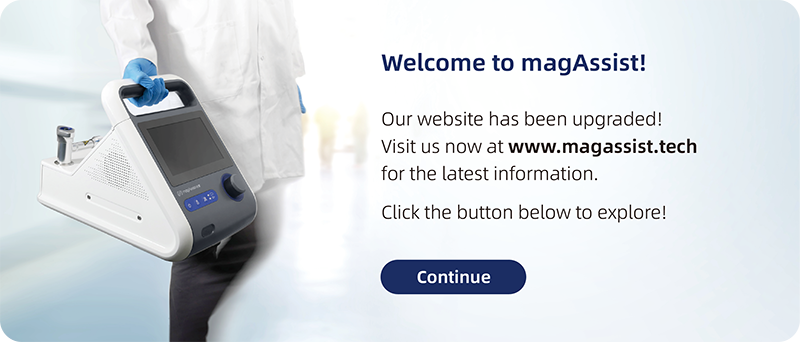First Patient with NyokAssist™ Interventional Ventricular Assist Device: Dr. Junbo Ge's team successfully completed the first high-risk PCI treatment supported by the new generation of interventi
Recently, NyokAssist™ was first-in-man (FIM) use, supporting High-risk PCI completed by Dr. Junbo Ge's team from Zhongshan Hospital in Shanghai. This successful implementation of HRPCI initially confirmed the safety and effectiveness of NyokAssist™ in assisting high-risk PCI.

Doctors completing HRPCI supported with NyokAssist™
The patient is a 48-year-old male, who was diagnosed with coronary artery disease (CAD), heart failure, type II diabetes, and post-PCI before surgery. Preoperative echocardiography showed left ventricular enlargement with decreased left ventricular systolic motion, with an LVEF of 34%. (Note: The case study has been authorized by the patient's consent and has been anonymized to ensure the protection of individual confidentiality.)
Given the patient's complicated medical condition and high surgical risk, Dr. Ge's team evaluated the possible hemodynamic disorders during the procedure, requiring mechanical circulatory support, and decided to perform PCI with the support of NyokAssist™. Eventually, the procedure went well. With the insertion of the 9Fr sheath, NyokAssist™ was easy to deliver through the aortic arch and valve, causing less invasive injury compared with the current product in the market. It effectively ensured safety and effectiveness through the procedure, providing an average flow of more than 3L /min. The patient's blood pressure was stable during the procedure. A testament to innovation, the patient's recovery culminated in discharge 2 days after the procedure.
Coronary artery disease (CAD) has been on the rise since the last decade in China, the number of PCI cases increased steadily to 1.5 million in 2022, of which high-risk PCI cases account for over 10%. Such operations have a high mortality rate. The persistent challenge lies in a lack of secure and effective intraoperative protection during clinical practice. The interventional VAD becomes a pivotal solution for maintaining the stability of intraoperative hemodynamics, securing the success of the operation, and optimizing postoperative outcomes.
The FIM use has been an exciting milestone for magAssist, showing that magAssist devotion to transforming innovations into lifesaving technologies has come to fruitful results. Furthermore, NyokAssist™ has recently received designation from the U.S. FDA's Breakthrough Device Program, underscoring its potential on the global stage.
Surgical Procedure
Coronary angiograms demonstrated an 85% in-stent restenosis in the distal segment of the left main. There was 80% stenosis of the proximal left anterior descending (LAD) coronary artery and total occlusion in the middle segment of the LAD. The left circumflex artery was small and the opening was completely occluded. The distal segment of the right coronary artery showed 50% stenosis.
After a thorough preoperative evaluation, a 9Fr sheath was inserted through the right femoral artery. Following this, the device was initiated to provide circulatory support at a steady 3.0 LPM once the pump was positioned. The AOP rose from 85/50 mmHg before the pump was started to about 120/80 mmHg. The AOP was stable during the whole procedure.
Fielder XT-R guide wire was successfully delivered through the occlusal segment to the distal left anterior descending artery with the assistance of an Expressman extension catheter and 130cm APT micro-catheter. The 2.0*20mm and 2.5*20mm balloons were pre-dilated at the lesions of the proximal-distal segment of the anterior descending artery. Then, two stents were implanted in series. Finally, the 2.0*20mm saccule was used to dilate the lesion of the first diagonal branch.
Wolverine (3.5*10mm) cutting balloon was used to dilate the lesions in the left main coronary artery, and Bingo (3.5*20mm) drug balloon was used to expand and release drugs. Angiography showed satisfactory expansion of the lesions without residual stenosis.
Angiography showed satisfactory stent expansion, with residual stenosis <30% in the first diagonal branch. There is no residual stenosis in the middle to the distal segment of the anterior descending artery, and TIMI 3 antegrade flow. The procedure went well, NyokAssist™ was easy to deliver through aortic arch and valve. The patient's blood pressure was stable during the operation. Echocardiography demonstrated the pump was in position, and no aggravation of aortic and mitral valve regurgitation was observed.
After the operation, the catheter pump was successfully removed, and only a single ProGlide SMC device was used to close the femoral artery. The patient was able to stand 6 hours later without vascular complications. The patient's recovery continued to progress positively, culminating in discharge 2 days later.
Disclaimer: NyokAssist™️ has not received approvals from either the U.S. FDA or China NMPA at this stage. The content is intended solely for informational purposes, with a focus on providing information including industry and academic exchange. It is not intended for advertising and should not be considered as an advertisement, either explicitly or implicitly. Nor shall it be considered for any purpose of offering to sale or sale. For precise information, please seek guidance from a healthcare professional.





